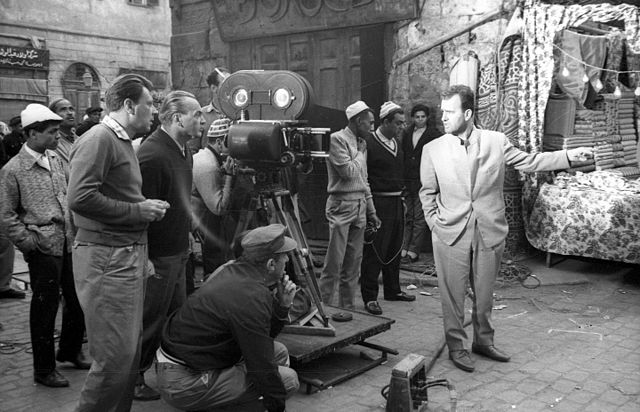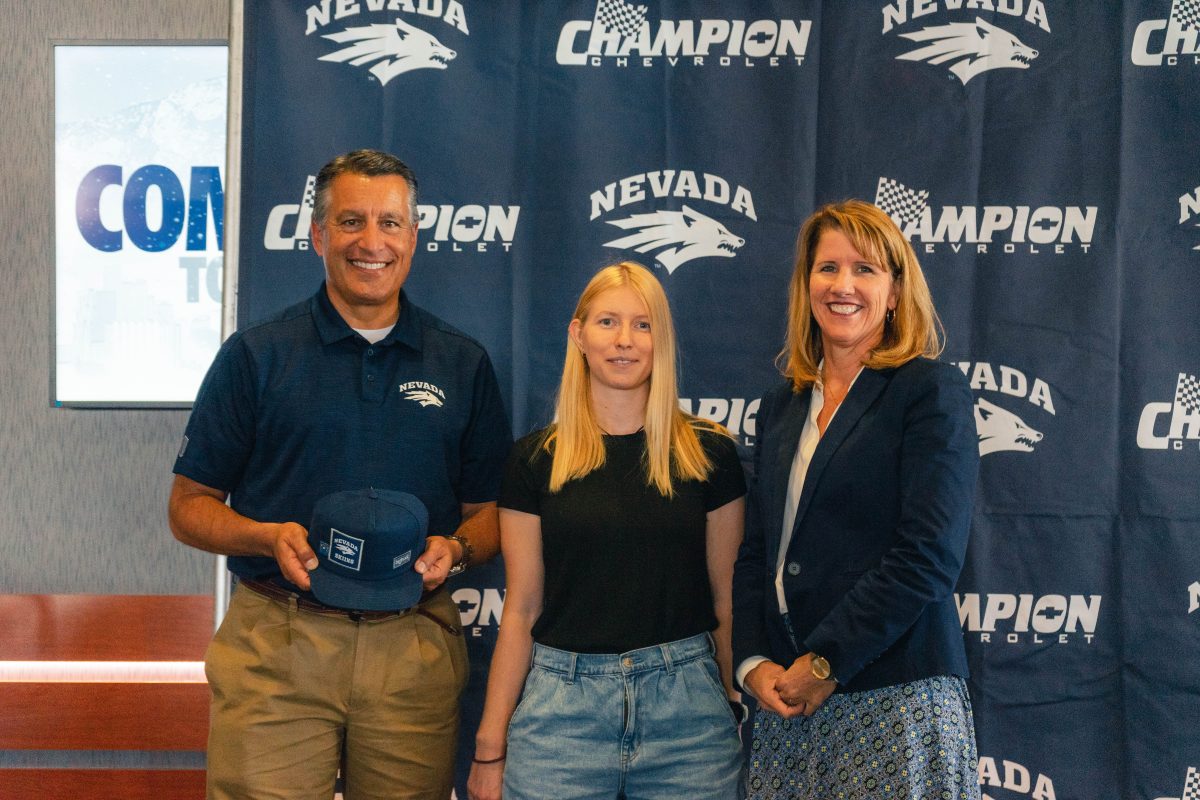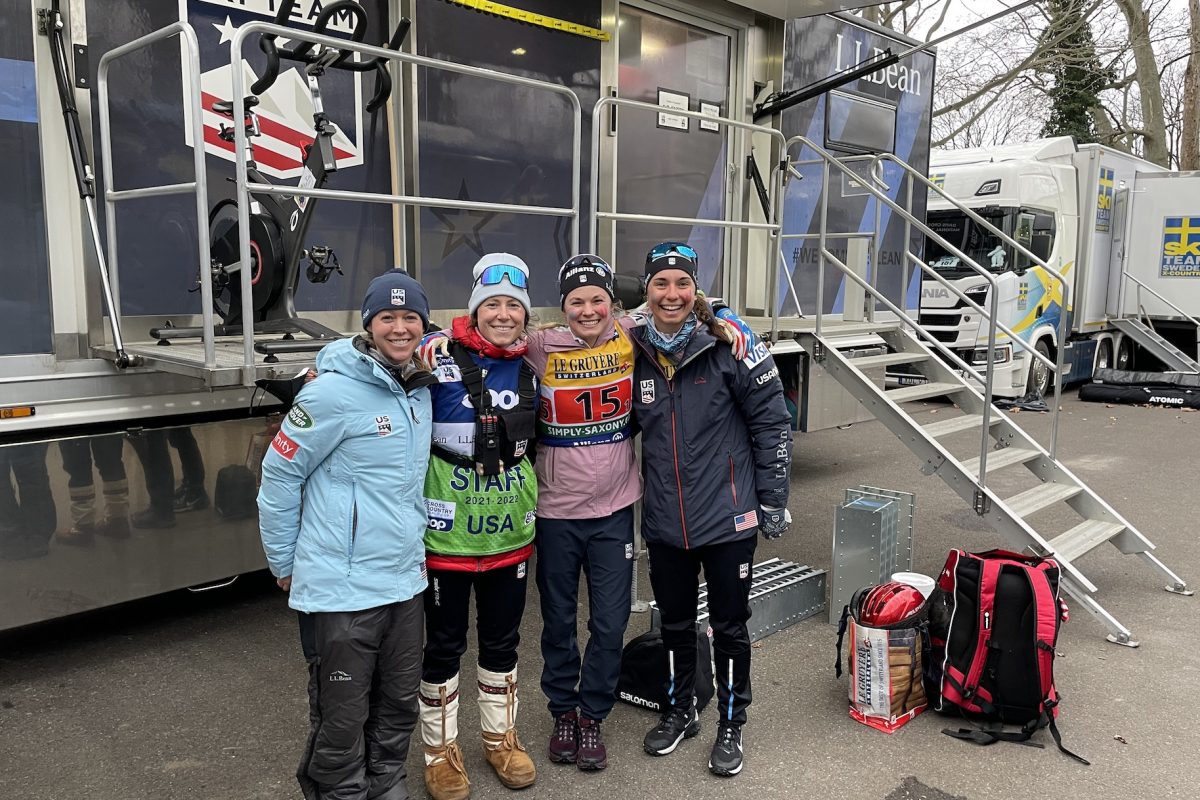
At the age of 34, Lukas Bauer of has already done pretty much everything a skier can hope for.
At the 2006 Olympics in Torino, he won silver in the 15 k classic. In Vancouver four years later, Bauer took home bronze in both the 15 k skate and the relay. He owns a silver medal from 2009 World Championships in the 15 k classic, and he has twice won the Tour de Ski; in 2007-2008 he also sat atop the leaderboard on the overall World Cup.
So what makes the Czech keep going?
A relentless pursuit of perfection, that’s what. Bauer still hasn’t won gold in either the Olympics or World Championships. Without either major event appearing on the 2011-12 FIS calendar, he is once again shooting for podium finishes in both the Tour de Ski and the overall World Cup.
Bauer doesn’t have one of the more outsized personalities on the World Cup; his reputation is as an honest competitor and a hard worker. He has talked in the past about doing workouts like 50 x 100 meter sprints (think about it: five kilometers worth of rollerski sprints!), a task that would make even the toughest athletes quiver in their boots. True to form, Bauer – who has excelled in individual start races but not in sprint finishes – recognizes his strengths and focuses on his weaknesses, quietly.
But in his correspondence with FasterSkier, Bauer has been not only courteous, which was expected, but funny. He was also as willing to take the time to answer questions as any other foreign skier we’ve approached.
FasterSkier was able to catch Bauer over e-mail from Muonio, Finland, where he is using the scant snow to prepare for the first World Cup races of the season along with most of Europe’s other national teams.

FasterSkier:First of all, how has your summer and fall been so far? I saw that you had ankle problems in the early summer, but
are you feeling prepared for competition now?
Lukas Bauer: I think that I had quite good summer and fall but for sure I had also some problems (ankle from a football match in June, and sickness in August). But I think it’s normal that sometimes your training is changed by some troubles. I’m not nervous about it and I know that when I was able to train, I trained well.
FS: You have been training with the Germans. Why did you decide to do that?
LB: Yes, it’s true. The system is that I’ve trained with Germans and the Oberwiesenthal group (trainer: Janko Neuber, German women’s ski team trainer; athletes: Tom Reichelt; Valentin Mättig; Monique Siegel) during my stay home, between Czech national team camps. During Czech national team camps I’ve trained with Czech team according Miroslav Petrasek, the Czech ski team trainer and my former personal trainer. The reason why I decided to change my previous training routine is not simple to explain, but I felt that I needed to change in the last two years. I had trained with this group (and also Rene Sommerfeldt) in the summer and fall of 2006 after Olympic games in Torino, and I was very satisfied. One of the reasons was that between Czech camps I had trained almost every day alone, and sometimes it is not bad if you have somebody to push you to the limits. The German group lives just five kilometers from my home. Now I have very good training partners on almost every session, and it is a benefit for everybody.
FS: How has training with them been different than when you were just training with the Czech team?
LB: Like I wrote before, now I did almost every session when I was at home with the group and not alone like before, which is good for motivation, more fun during long trainings, and also easier, because you can feel the coach’s support on every session. And there is also the difference in favor of various training resources (something that is special for every national team). If I can compare the Czech and German styles, then the Czechs prefer a lot of running training, and the German style prefers more rollerski training. But that is a very simple comparison and for me it was also interesting that this change open my eyes to training details, ĺike I was junior!

FS: How are the Czechs doing? Martin Jaks had a great Tour de Ski last year.
LB: My feeling is that my teammates had a very good summer and look stronger than last year. For sure especially Martin Jaks is
coming ito the best age, and they all could be faster then before in the winter. But the question is the same for everybody – how successfully they transfer better running endurance to skis. But it would be great if they can be stronger. We especially we need it for relays.
FS: With no World Championships, what are your goals for this season?
LB: It’s simple, this season for me the goal is the Tour de Ski! And the second goal is for the overall World Cup standing, where my goal is the top three places. But if the season will go in bad direction, like if there’s no chance for the top three in the overall, then I will think about Vassaloppet.
FS: Last year, the World Cups in the Czech Republic weren’t really suited to your style of skiing, but this year there is a long classic race. Are you focusing on those “home” races in particular, and are you excited for them?
LB: Yes, for sure, I’m focusing on World Cup in Nove Mesto – because there is every time an excellent atmosphere and I like to ski there.
FS: Is it ever hard to motivate yourself to train and compete when you have already had so much success?
LB: I have no problem with races, but for sure sometimes for training, especially when is very bad weather, I need a kick [in the pants]. But without training you never get results….

FS: Looking back, how do you feel about the 2011 season? Were you happy with your results?
LB: I’m very satisfied with my third place in Tour de Ski overall. Maybe this Tour was for me the hardest compared to previous
Tours, because almost nothing went in the direction that I wanted and that I needed… [there were] some problems with skis, wax, some crashes, and also my rivals were very strong in the sprints, where they took a lot of bonus seconds. And with my sprint “abilities” [Bauer inserted a frowning emoticon] I had to work hard to reach third place in the final.
World Championships in Oslo was not successful for me. Not bad, but not succesful. But it is just that some athletes were simply better in this time and also after struggling with waxing, like many teams, my seventh place from 15 k classic was nothing excellent, but also not a fiasco.
FS: How much mountain bike racing did you do this year? Do you think it helps your skiing physically, or do you mainly do it just because it’s fun and that helps you get out the door?
LB: I did just one mountain bike race this year, which is nothing. I decide to decrease my mountain bike racing this summer when I changed training routine with the idea of being more focused on skiing. I like mountain bike racing a lot, and when I was junior I was on the edge about whether I would continue like a skier or a mountain biker. It’s fun and also fun training.
FS: It seems like FIS changes the rules and the race formats all the time. What new formats and new rules would you like to see?
LB: Yes, there are many changes during last few years. I think that it is important to slow down with changes and make the rules more simple and more “viewer friendly”. And to make better TV coverage, because sometimes it is quite boring – but I’m not sure how much it is FIS and how much TV production.
FS: When you won the relay bronze medal in Vancouver, it really proved that your country had a good team instead of just a few excellent individuals like you and Neumannova. What did that do for you and the other skiers? Have you been able to find more sponsors? Has skiing become more popular in the Czech Republic?
LB: The relay was amazing and I think that it helped other members of relay to find more sponsors, but for me is difficult to say if and how much, because I also had an individual medal from Vancouver and some other very good results from the past, which meant that I “already had name”. But for me it was important that we reached this excellent result with the team and not “just” with individuals. It was also great for our support team (servicemen, doctor, masseuse) and for sure for our families, because they are behind us in the shadow and without their support is not possible for us to do it.

About the sponsors, for sure after Vancouver I’ve found some more sponsors, but for me it was also important that when many companies were fighting with financial crises I still had sponsors, and with them I’m able to make preparations for the season like I want. Skiing in the Czech Republic looks more popular than some years before (I’m talking about how many kids are doing the sport, not about how often this sport is on TV and newspapers), but the problem is that skiing is quite an expensive sport and the young generation like computers and TV than sports. But it is the same everywhere.
FS: What about the 2009 World Championships – corruption seems to have been a big problem. Has that led to any change in public opinion about skiing, or affected you in any other ways?
LB: It affected me just right after WCH, when I was almost every day asked what is my opinion about [it]. I think that the investigation around WCH, if there was or wasn´t corruption, is not finished yet. But I think that after some “hot” months right after WCH it looks that public opinion is not negatively changed about skiing, there is more [just] a negative public opinion about Neumannova and her team that was organizing WCH.
FS: I’ve heard and read that you have been trying to work on your speed in all sorts of ways, including using the SkiErg. What has your strategy been in that department and would you consider the SkiErg experiment a success?
LB: Yes, the summer between Vancouver and Oslo, our goal was to work more on speed. Not to try be a danger for Petter Northug in sprint, but just to work to be faster for bonus points during mass start races and to be able to change speed during some attacks. I think that it was visible on some races last winter (for example the World Cup La Clusaz), but for sure, first it is important to be healthy and to be in good shape and this is something extra… And my former trainer thought the SkiErg looked like a good tool for upper body. I did some training on this machine, and some intervals. First I was surprised at how quickly your energy goes away, but we don’t do a lot of training on it. I still have it in my garage. I did little tuning, and sometimes I’m using it, but not often.
FS: Doping seems to always be a topic of discussion with skiing, but the Veerpalu case is bigger than most. Do you think that his positive test in particular has changed anything for the sport or for you? Do you sense a greater distrust on the part of the fans?

LB: I think that it changed nothing for sport, because, it is a pity but it’s reality that just like in normal life, also in the sport (and skiing) there are some people who will cheat the rules. My opinion is that these people were, are and will be [another sad emoticon]. And this is WADA’s job to try to catch people who are cheating the rules. What his case changed for me? Nothing
specific. But for sure I had in my head questions without answers like: In the case that he used the doping (only he knows if he did or not) had he used the doping also in the past, when I took silver in WCH in Liberec 2009, and also in Olympics in Torino 2006, right behind him? Why did he do it just before end of his career? This was what I had in my mind, but I’ve stopped it, because I don´t know and never will know the answer. And also I’ve [convinced myself] that I don’t know it. Why? Because now I can think that I lost gold medals in a fair fight (hoping that if he used doping it was only when he was caught), because I don’t want to get medals by [default]. For me the results are not about the medals, but about emotions, and they were built there with the silver medal and there is no chance to change that.
And about the fans? Maybe I’m crazy but my opinion is that the fans who believed that Veerpalu is a doper now will scream that they were right, and the fans who believed that Veerpalu is clean will still believe that he is innocent, and just small part of them will change their opinion. It’s the same with every skier.
FS: You are obviously very busy as an athlete, but your wife is quite accomplished as well. How do the two of you make time for family, and is it a challenge with so much travel and racing?
LB: For sure, winter time especially is a hard time for my family, but it’s life and I’m happy that my family is still supporting me in my sport dreams. But the rest of the year I’m trying be home as much as possible, and this was also one reason why I changed my training routine last spring.



